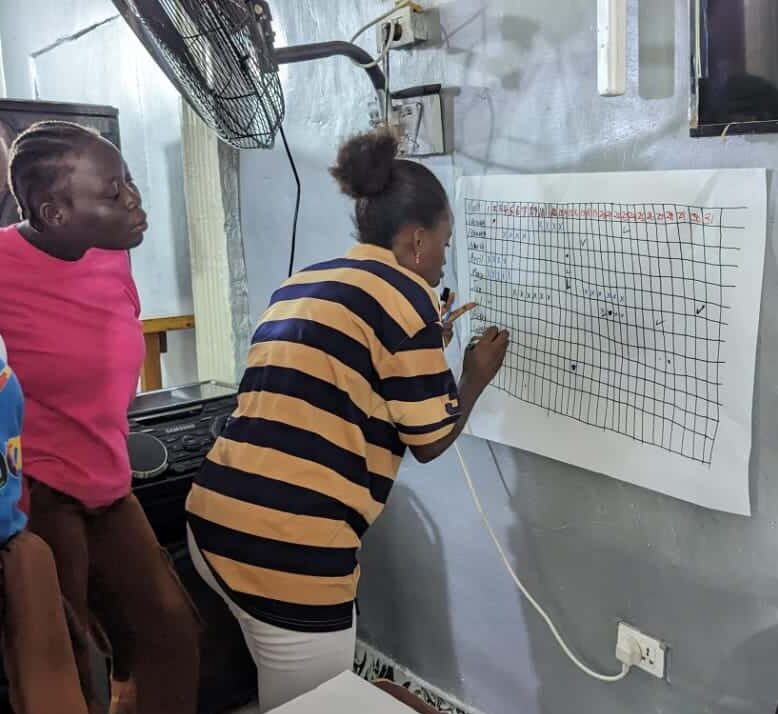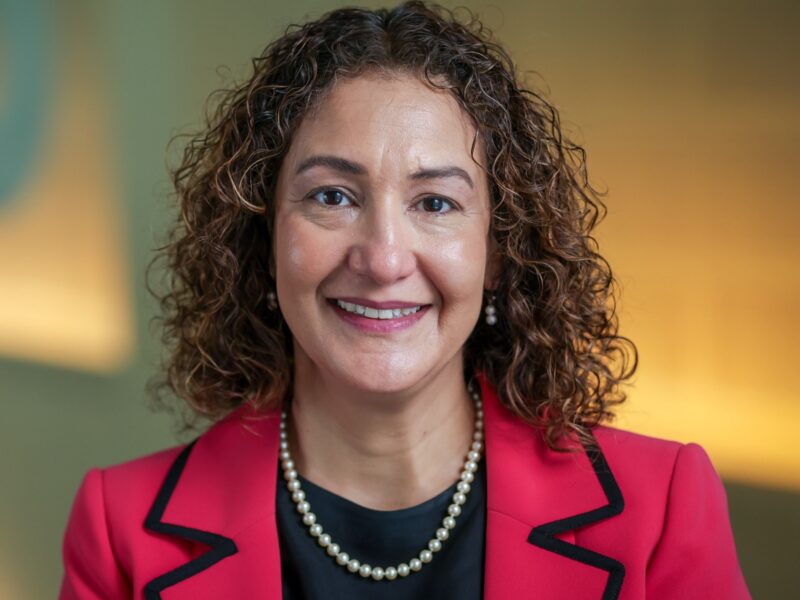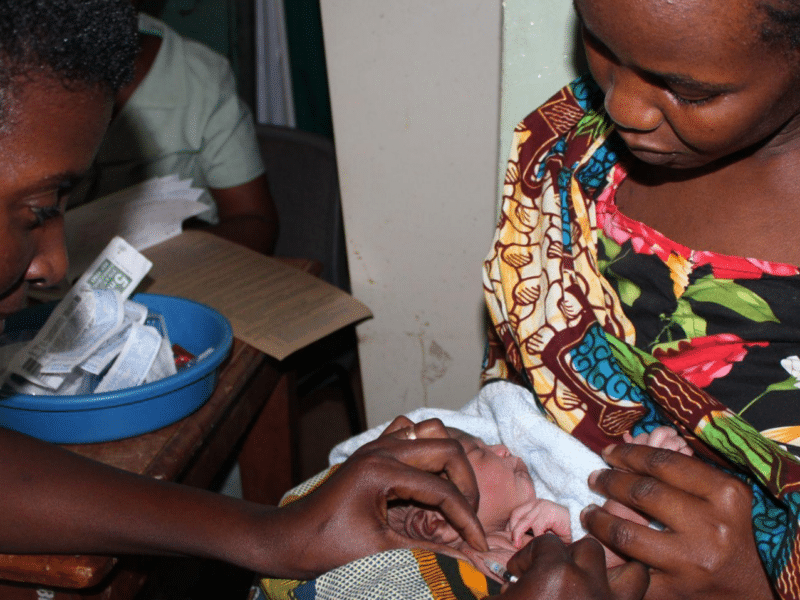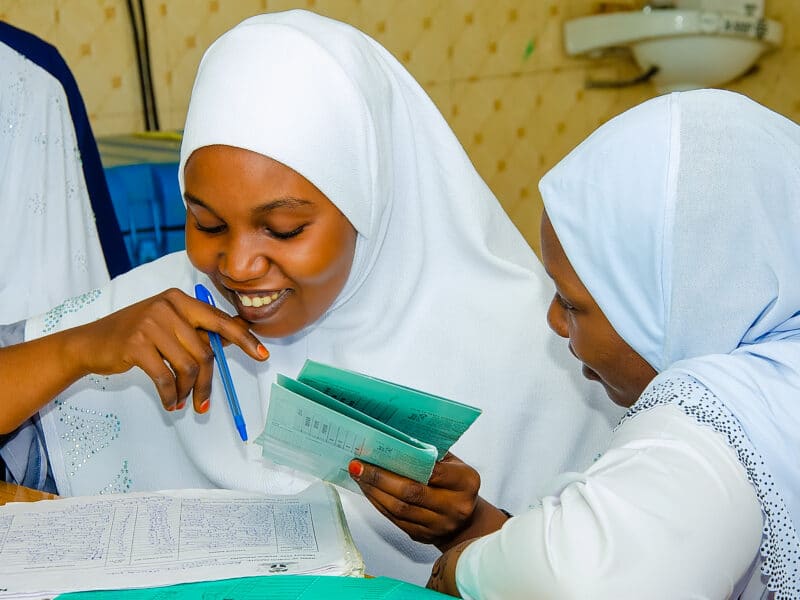The song was played everywhere in Liberia: on the radio, at community meetings, on a health hotline.
Its lyrics, penned and recorded by a group of adolescents brought together last year by the Johns Hopkins Center for Communication Programs-led Breakthrough ACTION project and partners, were meant to bring talk of menstrual health and hygiene – long shrouded in stigma and silence – out into the open.
“To every girl and woman under the sound of my voice,” goes the second verse of “Manage Your Period,” “menstruation is not dirty, it is our pride.”
More than 55,000 people would go on to hear the a cappella song, the foundation for a series of community dialogues with girls and boys, parents, caregivers and teachers all in the name of making people more comfortable talking about the natural process of menstruation.
For this year’s World Menstruation Day, the song is back, and it is now the centerpiece of a new Breakthrough ACTION toolkit designed to increase knowledge about menstruation, puberty and fertility. Following a short orientation on menstrual health, the toolkit will be distributed alongside a three-month supply of pads and soap to tens of thousands of Liberian girls.
“The main aim of our work is to reduce the stigma associated with menstruation,” says CCP’s Lindsey Leslie, social and behavior change advisor for Breakthrough ACTION Liberia. “We want people to really get comfortable making menstruation part of normal discourse. And by increasing public discourse, we’re hoping to reduce instances of bullying, period stigma and other negative taboos associated with menstruation.”
Normalizing menstruation can only happen if programs address cultural norms, religious beliefs and socio-economic barriers that contribute to the stigma. Girls report being bullied in school when they have their periods or skipping school altogether. They sometimes resort to using unhygienic alternatives to sanitary products, leading to health risks. This bullying can prevent girls from staying in school.
Starting in February 2024, Breakthrough ACTION Liberia began holding stakeholder workshops with religious and traditional leaders, teachers, students, parents, and county health officials. The purpose of the meetings was to discuss barriers to improving menstrual health and hygiene in Liberia.
Through the discussions, the influential leaders identified several existing norms that create challenges for menstruators in Liberia:
- Menstruation is not discussed openly. It is not encouraged in public spaces.
- In some counties, menstruating students are discouraged from discussing their periods with their teachers.
- Some religious leaders prefer women abstain from places of worships when on their menses.
- Traditionally, women are asked to step away from food preparation when menstruating (because it is considered unhygienic).
- In the past, menstruating girls were also told to keep it a secret, even from family members (e.g. such as brothers, fathers) and/or non-menstruating friends.
During the stakeholder meetings, stakeholders also discussed what new norms they hoped to see around menstruation:
- Menstruation is a normal bodily function and it is everyone’s business!
- Everyone should support girls, children and wives when menstruating.
- Women should be able to actively worship during her period without restriction.
- Parents should send their kids to school during their periods.
By advocating for increased availability and affordability of menstrual products, the project aims to alleviate these challenges and promote menstrual hygiene and awareness.
“We need to change the dynamics around how people talk about menstrual health in Liberia because it is not prioritized,” says CCP’s Juliet Wilson, a senior program officer for Breakthrough ACTION Liberia. “In some places, schools discuss this, but that is not a wide practice. Religious norms often dictate that menstruation is dirty and embarrassing and men should not talk about it. Some are unable to speak with their own children about these issues.”
Starting this conversation early, with boys and girls, could go a long way toward shifting the way menstruation is viewed in the years to come. Instead of having to be embarrassed or feeling the need to stay hidden during menstruation, girls should feel comfortable about what is happening to their bodies.
“We want to see boys standing and teaching their friends to stop bullying girls about their menstruation,” says Wondaneh Yorgbor-Lymas, assistant director of Liberia’s Ministry of Gender and Social Protection, Adolescent Girls Division. “We want our girls to stay in school, graduate, and further their education.
“Menstruation is not a sickness. It’s nature. So, when we are menstruating, we are not supposed to be discriminated against. Everyone – males and females – should be able to offer help. We should be able to talk about it openly. We need to change the narrative about menstruation.”





